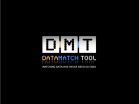(Press-News.org) INDIANAPOLIS – Indiana University and Regenstrief Institute researchers report that it takes significantly longer for orders to forgo resuscitation in the event of cardiac arrest to be written for patients who had that decision made for them by a surrogate decision-maker compared to patients who made their own decisions, even though patients with a surrogate were sicker and the resuscitation issue might arise sooner. Among patients who died, patients with a surrogate had a shorter time frame between writing the DNR order and time of death compared to patients who made their own decisions.
"Surrogate decision making is not just more challenging for everyone, it actually affects important care processes in the hospital—in this case, code orders," said lead author Regenstrief Institute investigator Alexia Torke, M.D., assistant professor of medicine at the IU School of Medicine. "The delay in DNR orders may be due to the more complex ethical and communication issues involved in surrogate decision-making compared to patient decision-making. For a variety of reasons, including not being sure of what the patient would want, surrogates may have difficulty making the DNR decision."
"The Timing of Do Not Resuscitate Orders for Hospitalized Older Adults Who Require a Surrogate Decision Maker" appears in the July 2011 issue of the Journal of the American Geriatrics Society.
For every patient admitted to the hospital, a decision needs to be made about whether to resuscitate if the heart or breathing stops. If no decision is made, the patient is generally assumed to be "full code" and full resuscitation will be given, if needed. Some patients decide to have DNR orders, so if their heart or breathing were to stop they would be kept comfortable and allowed to die naturally. Dr. Torke notes that the shorter time frame between the decision to write a DNR order, if a surrogate is involved, and cardiac arrest, allows less of an opportunity for the family and other loved ones to come to terms with death before it occurs and less time to provide palliative care to the patient.
The three-year study of 668 adults age 65 and older in a large, urban public hospital found that surrogate decision-making is the norm rather than the exception. Surrogates made the DNR decision 58 percent of the time. Patients who were unable to make their own decisions and required a surrogate were more likely to be in the Intensive Care Unit (ICU) but did not differ by demographic characteristics from those able to make their own decisions.
For surrogates, DNR decision-making appears to be a process rather than a single event and may require more than one conversation with health care provides , which may contribute to longer times to reach decisions, the researchers note. Previous studies have found that delays in DNR decision-making are associated with higher hospital costs and longer lengths of stay compared to patients whose DNR orders were written at the time of admission.
Surrogate decision making is likely to become even more common as the population ages and the prevalence of dementia and delirium increases. The researchers call for further study to see if supporting surrogates in their decision making can reduce delays in DNR decisions and impact elements of patient care, such as length of stay or cost.
INFORMATION:
Co-authors of the study, which was funded by the National Institute on Aging, in addition to Dr. Torke, are Greg A. Sachs, M.D., Siu Hui, Ph.D., and Christopher Callahan, M.D., of the IU School of Medicine, the Regenstrief Institute and the IU Center for Aging Research; Paul R. Helft, M.D., of the IU School of Medicine, Indiana University Melvin and Bren Simon Cancer Center and the IU School of Nursing; Sandra Petronio, Ph.D., of the schools of Liberal Arts and Nursing; Christianna Purnell of the Regenstrief Institute and the IU Center for Aging Research. Drs. Torke, Helft, and Petronio are affiliated with the Fairbanks Center for Medical Ethics and IU Health.
The IU schools of medicine, nursing and liberal arts, the IU Simon Cancer Center, and the Regenstrief Institute are located on the Indiana University-Purdue University Indianapolis campus.
Writing DNR orders takes longer, death more likely when surrogate decision-maker involved
2011-07-12
ELSE PRESS RELEASES FROM THIS DATE:
Biofilters reduce carbon footprint of old landfill sites
2011-07-12
Researchers in the US are testing biofilter systems as a viable alternative to releasing methane from passive landfill vents into the atmosphere. The technology could reduce the overall impact of old landfills on global warming. Details are reported in the current issue of the International Journal of Environmental Engineering.
Organic matter rotting in smaller, old landfill sites generates a slow trickle of the potent greenhouse gas, methane, into the atmosphere, amounting to just 2 or 3 kilograms per day per vent. In contrast to controlled methane generate for biofuel ...
Aerospace Manufacturing in Mexico is the Subject of Offshore Group Podcast
2011-07-12
Carlos Bello, executive director of the Mexican Federation of Aerospace Industries, recently sat down with The Offshore Group to discuss the current state of affairs in Mexico's rapidly developing aerospace sector.
During the session, Bello informed that Mexico is currently home to 232 aerospace and aerospace industry related companies that employ a combined 29,000 workers. According to Bello, "In recent years, aerospace manufacturing in Mexico has been "experiencing a growth rate of about 20% annually, with the exception of 2009, which was a difficult year ...
EARTH: Is there really a minerals crisis?
2011-07-12
Alexandria, VA – China sent the high-tech industry and markets reeling last fall when it blocked exports of raw rare earth minerals to Japan, Europe and the U.S. The sudden severing of rare earths supply was a frightening prospect as the minerals are key ingredients in a broad range of high-tech products, from smartphones to wind turbines and hybrid cars. Although the bans have since been lifted, governments around the world saw the ban as a kind of wake-up call and started looking at ways to develop their own mineral resources — for rare earths as well as basic industry ...
Is a little negativity the best marketing policy?
2011-07-12
Tel Aviv — Most marketing departments work hard to establish a flawless reputation for their product or service. But new research from Tel Aviv University is showing that perfection is not all it's cracked up to be.
Dr. Danit Ein-Gar of Tel Aviv University's Faculty of Management at the Leon Recanati Graduate School of Business Administration, working in collaboration with Baba Shiv and Zakary Tormala from Stanford University, has uncovered the "blemishing effect," a counterintuitive benefit of negative information. When utilized in the right way, she says, a small flaw ...
New study highlights what works in osteoporosis treatment
2011-07-12
TORONTO, Ont., July 11, 2011—More patients are tested and treated for osteoporosis when fracture clinics have someone dedicated to screening for the bone disease, a new study has found.
Those patients also do better when the clinic actually provides bone mineral density (BMD) testing or prescription drug treatment as part of its program rather than just referring fracture patients elsewhere.
Researchers at St. Michael's Hospital led by Joanna Sale, a clinical epidemiologist, reviewed osteoporosis screening and management programs involving patients treated for fragility ...
Data Match Solutions Releases DataMatch Tool 2.0 - An Essential Software for Linking Databases
2011-07-12
Data Match Solutions today released DataMatch Tool 2.0, a very powerful software to match and merge databases. This software helps researchers, faculty and students to save valuable time and effort to collect and analyse data for their projects.
Academics can now take their research to a higher level
With DataMatch Tool 2.0 (DMT 2.0), researchers can link data from different sources easily and quickly and take their research to a higher level.
Based on their experience in academic research and their knowledge in data collection and analysis, researchers from Data ...
Natural pain relief from poisonous shrub
2011-07-12
An extract of the poisonous shrub Jatropha curcas acts as a strong painkiller and may have a mode of action different from conventional analgesics, such as morphine and other pharmaceuticals. Details of tests are reported in the current issue of the International Journal of Biomedical Engineering and Technology.
Omeh Yusuf and Ezeja Maxwell of the Micheal Okpara University of Agriculture in Umudike, Nigeria, explain how J. curcas, also known as the "physic nut" is a perennial shrub that grows to 5 meters in height and belongs to the Euphobiaceace family. It is native ...
Online consumers willing to pay premium for Net privacy, says study in INFORMS Journal
2011-07-12
Online consumers thought to be motivated primarily by savings are, in fact, often willing to pay a premium for purchases from online vendors with clear, protective privacy policies, according to a new study in the current issue of a journal of the Institute for Operations Research and the Management Sciences (INFORMS®).
"The Effect of Online Privacy Information on Purchasing Behavior: An Experimental Study" is by Janice Y. Tsai, Serge Egelman, Lorrie Cranor, and Alessandro Acquisti of Carnegie Mellon University. The study appears in the current issue of the INFORMS journal ...
All-cause mortality rates are lower among moderate drinkers than among abstainers
2011-07-12
The author of this paper set out to determine the extent to which potential "errors" in many early epidemiologic studies led to erroneous conclusions about an inverse association between moderate drinking and coronary heart disease (CHD). His analysis is based on prospective data for more than 124,000 persons interviewed in the U.S. National Health Interview Surveys of 1997 through 2000 and avoids the pitfalls of some earlier studies. He concludes that the so-called "errors" have not led to erroneous results, and that there is a strong protective effect of moderate drinking ...
Paddington Brands Launches 90+ Rated Agoston Spanish Red Wines Nationally Through Walgreens
2011-07-12
Paddington Brands announced today that it has launched its Agoston wine brand through Walgreens, the nation's largest drugstore chain. Bodegas Virgen del Aguila, the Spanish wine cooperative, confirmed Paddington Brands as the exclusive U.S. importer of Agoston wines.
"When we first tasted Agoston, we knew this was a wine that would appeal to American consumers," said J. Smoke Wallin, chairman and CEO of Paddington Brands. "Year after year Agoston has been receiving 90+ points in the Penin Wine Rating Guide, which is Spain's equivalent to Robert Parker ...





